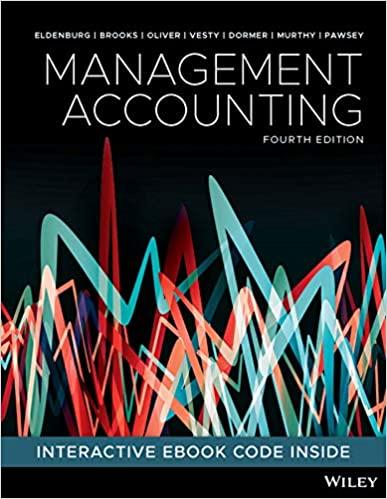Unilever is a large DutchBritish consumer product manufacturer with sites around the world including Australia and New
Question:
Unilever is a large Dutch–British consumer product manufacturer with sites around the world including Australia and New Zealand. Unilever’s product range comprises well-known consumer product brands including personal hygiene products — Dove, Pond’s, Vaseline, Sunsilk, Lynx, Rexona; laundry detergents — Radiant, Surf, Lux; and food and nutrition products — Bertolli (olive oil), Amora (salad dressings), Lipton (tea), Streets (ice cream, with Magnum their number 1 brand) and Knorr (Unilever’s number 1 brand worldwide for flavourings and gravy).
Recently, Unilever’s management has re-evaluated its strategic direction, and has reorganised some of its business units and reduced its workforce. It also launched six global strategic initiatives, one of them relating to ‘business simplification’.
In response to the global strategic initiative, Jean-Lin Toulemonde (Unilever Australasia chairman) launched a ‘radical business simplification program at Unilever, designed to eliminate unnecessary work, make people more effective, and lift the company’s business performance’. Jean-Lin has a strong belief in business that ‘simple is often best’ and has looked to simplify things wherever possible.
If you ask yourself whether you can imagine an organisation that is successful, responsive, fun to work at, full of motivated people and that is also very bureaucratic, the answer is clear: you can’t. The good news is your people can’t either! Bureaucratic procedures develop slowly but inexorably. I use the analogy of the street signs you see on Sydney streets — no doubt each of those sign placements made sense at one time, but the aggregate effect now is often chaos. Businesses need a periodic spring-cleaning, if they are to keep working effectively.
Jean-Lin considered that part of that complexity came from the nature of the business. Unilever operate in many markets, with many product categories and many brands. In that type of environment it’s easy to end up trying to do too many things, rather than doing fewer things better. It’s easy to become over-stretched, from both a process and resources point of view, and end up wasting opportunities.
He explained how the senior management team called for a more focused approach to fit with Unilever’s overall strategy ‘which is essentially about fewer, but bigger brands, and fewer, but more important activities’. He explained how they also identified problems with the Unilever organisational structure. They looked hard at the value-chain processes within Unilever to see where they could simplify them.
They also evaluated their performance measurement control systems (PMCS). Jean-Lin argued that ‘if you measure everything that moves in your business, you may simply be complicating your business. We had a concept of “loose versus tight” controls — let things happen in the business, don’t try to control everything, and trust our people to deliver the results. You don’t need a lot of additional measures and KPIs [key performance indicators] — you simply need to measure whether you are achieving your original objectives’.
He thought the biggest concern for divisional managers related to the delegation of control. He explained the questions coming from this layer of senior management was ‘are you really prepared to give me responsibility and resources to simplify the way I operate, and will you punish me if I make mistakes?’ Once we convinced people we were serious, and that mistakes would not be treated unreasonably, then people became enthusiastic and prepared to take risks.
Required
(a) Jean-Lin has provided a brief insight of management control at Unilever. Drawing on this insight, evaluate the role of performance measurement and control at Unilever. Use Simons’ levers of control to help guide your response.
(b) How can performance measurement and control systems help with the implementation of Unilever’s organisational strategy?
Step by Step Answer:

Management Accounting
ISBN: 9780730369387
4th Edition
Authors: Leslie G. Eldenburg, Albie Brooks, Judy Oliver, Gillian Vesty, Rodney Dormer, Vijaya Murthy, Nick Pawsey





